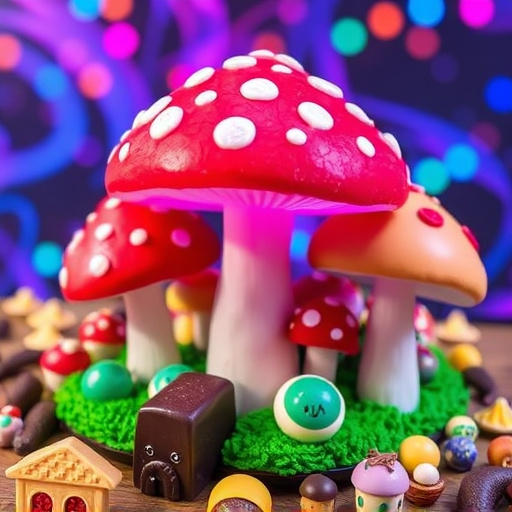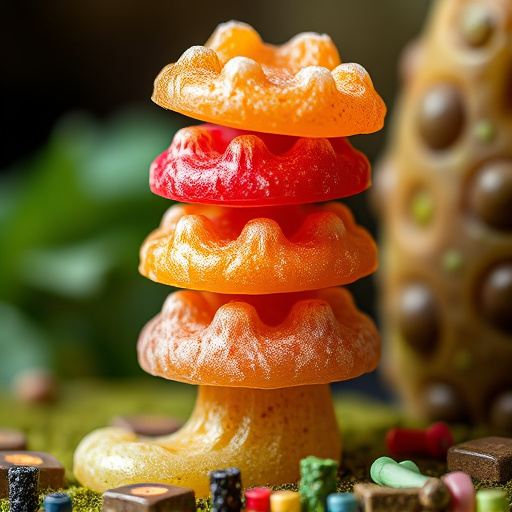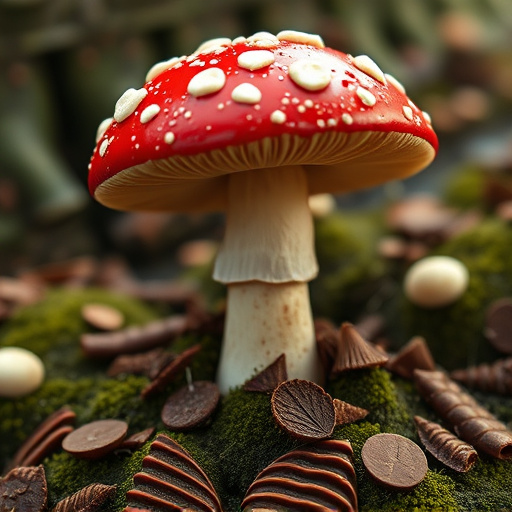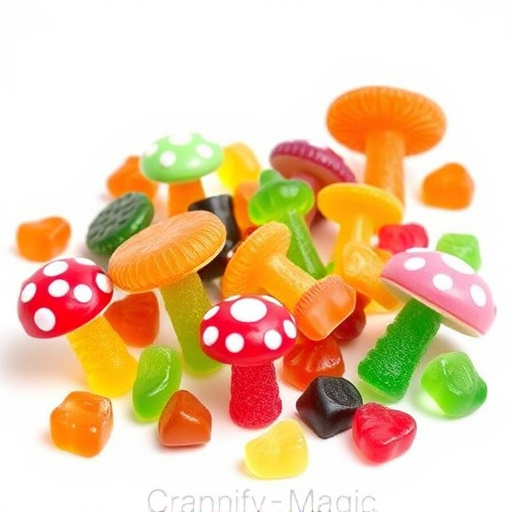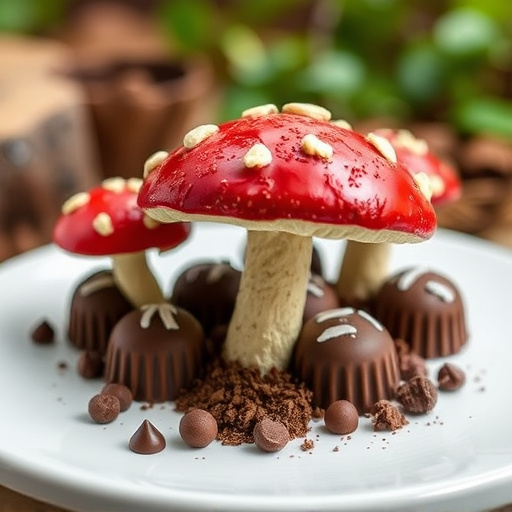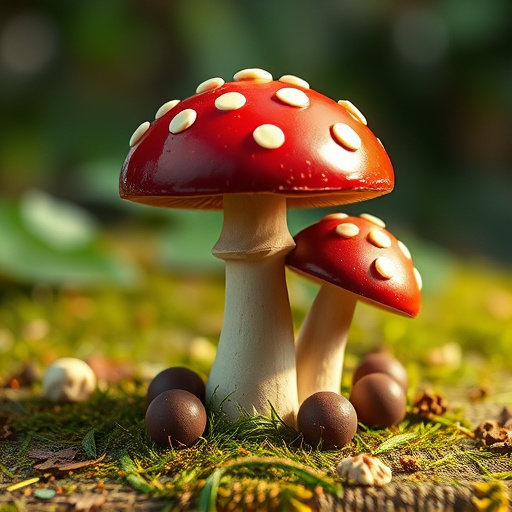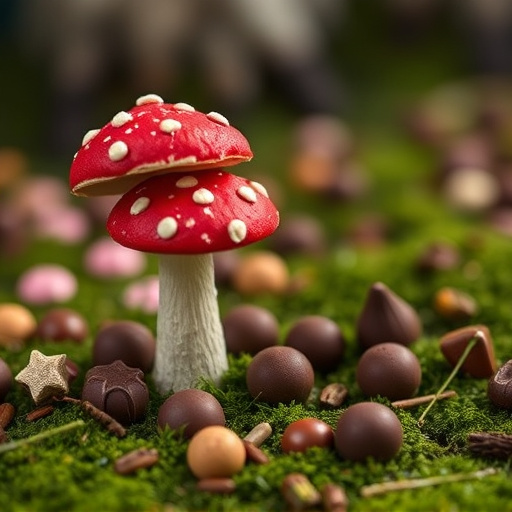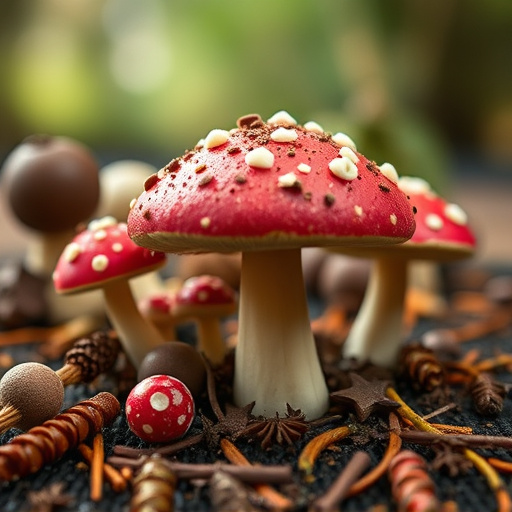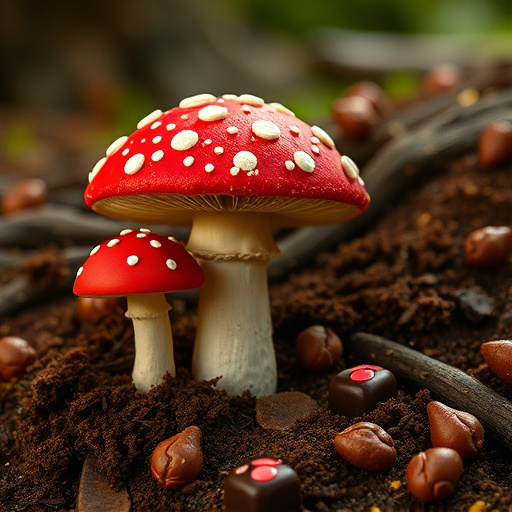The long-term effects of magic mushroom chocolates, containing psilocybin and psilocin, show promise for positive changes in mood, creativity, spiritual experiences, emotional sensitivity, and connection to nature. However, these substances carry risks of anxiety, paranoia, and unpredictable reactions. Research is ongoing to fully understand their benefits and risks, particularly for therapeutic use in treating depression, anxiety, and PTSD by promoting neuroplasticity and personal insights.
“Unveiling the profound impact of magic mushroom chocolates: a journey through psychoactive compounds, their effects on the mind, and the emerging landscape of therapeutic potential. Psilocybin, the key ingredient, converts to psilocin, interacting with brain serotonin receptors to induce altered perceptions and boost creativity. Beyond short-term highs, exploration of long-term effects reveals benefits for mental health conditions while acknowledging risks like bad trips and flashbacks. Navigating legalities and adopting responsible consumption practices are crucial steps in harnessing the potential of these powerful substances.”
- Psychoactive Compounds and Their Impact
- – Explanation of psilocybin and its conversion to psilocin
- – How these compounds interact with the brain's serotonin receptors
Psychoactive Compounds and Their Impact
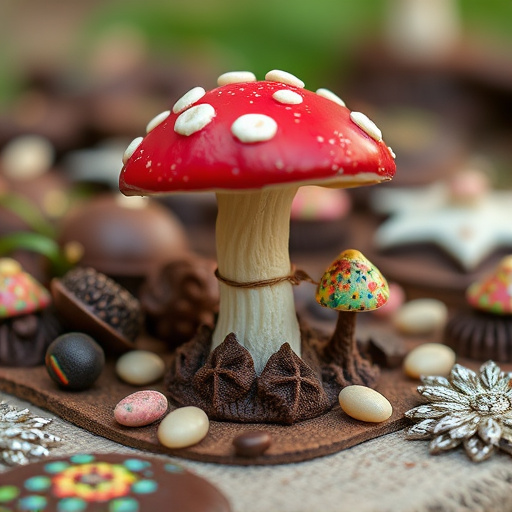
Magic mushroom chocolates, while sounding delightful, contain psychoactive compounds primarily derived from psilocybin and psilocin, the active ingredients found in magic mushrooms. These compounds work with our bodies’ natural serotonin receptors, leading to altered states of consciousness, heightened senses, and profound experiences. The impact can vary greatly among individuals, influenced by factors like dose, setting, and personal expectations.
The long-term effects of consuming magic mushroom chocolates are a topic of growing interest in the scientific community. Research suggests that psilocybin can induce lasting positive changes, including improved mood, increased creativity, and enhanced spiritual experiences. Some users report heightened emotional awareness and a profound sense of connection to nature or the universe. However, like any psychoactive substance, it’s important to approach magic mushroom chocolates with caution, considering potential risks such as anxiety, paranoia, or unpredictable reactions, especially in unfamiliar settings.
– Explanation of psilocybin and its conversion to psilocin
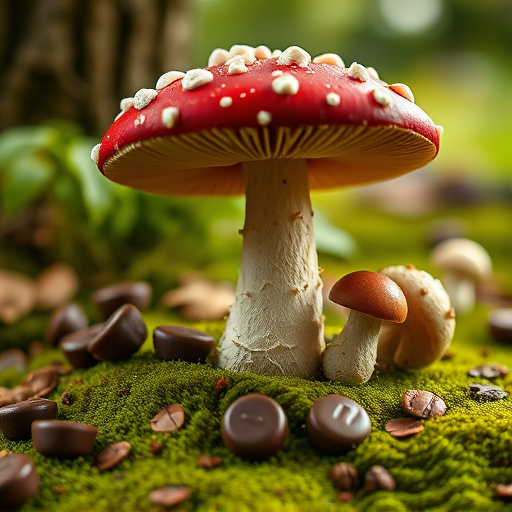
Psilocybin, the active compound found in magic mushrooms, is a powerful psychedelic that has gained significant interest in recent years for its potential therapeutic benefits. When consumed, psilocybin is metabolized by the body into psilocin, which is responsible for the majority of the substance’s psychoactive effects. Psilocin interacts with serotonin receptors in the brain, leading to altered perceptions, heightened emotions, and a range of spiritual or mystical experiences. This process can result in long-term effects that vary from person to person, including enhanced creativity, improved mood, and increased feelings of connectedness to nature and others.
The conversion of psilocybin to psilocin is a key factor in understanding the long-term effects of magic mushroom chocolates. As psilocybin breaks down in the body, it converts into psilocin, which then binds to serotonin receptors. This interaction can trigger profound changes in consciousness and perception, often leading to what’s known as a ‘trip’. The experience can be deeply personal and vary greatly depending on set (mental state) and setting (environment). Long-term users may report sustained alterations in their outlook on life, increased empathy, and improved coping mechanisms for stress and anxiety. However, it’s important to note that the long-term effects of psilocybin are still being studied, and more research is needed to fully understand its potential benefits and risks.
– How these compounds interact with the brain's serotonin receptors
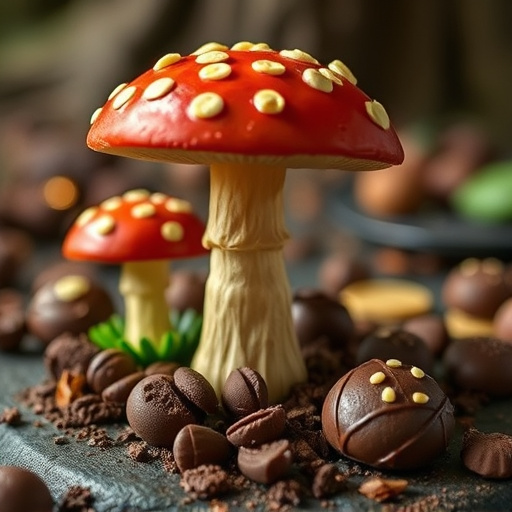
The primary active compounds in magic mushroom chocolates, psilocybin and psilocin, interact with the brain by binding to serotonin receptors, specifically the 5-HT2A receptors. Serotonin itself is a neurotransmitter that plays a crucial role in mood, perception, and cognitive function. When psilocybin and psilocin bind to these receptors, they can alter the balance of serotonin in the brain, leading to various psychological effects. These effects often include heightened senses, altered perceptions, and changes in mood and thought patterns.
The long-term effects of magic mushroom chocolates are a subject of ongoing research, but preliminary studies suggest that these compounds may have therapeutic potential for conditions like depression, anxiety, and PTSD. By interacting with the brain’s serotonin system, they can potentially promote neuroplasticity and facilitate new ways of thinking and processing emotions. This interaction also contributes to the mystical experiences often reported by users, which can lead to profound personal insights and changes in perspective.


